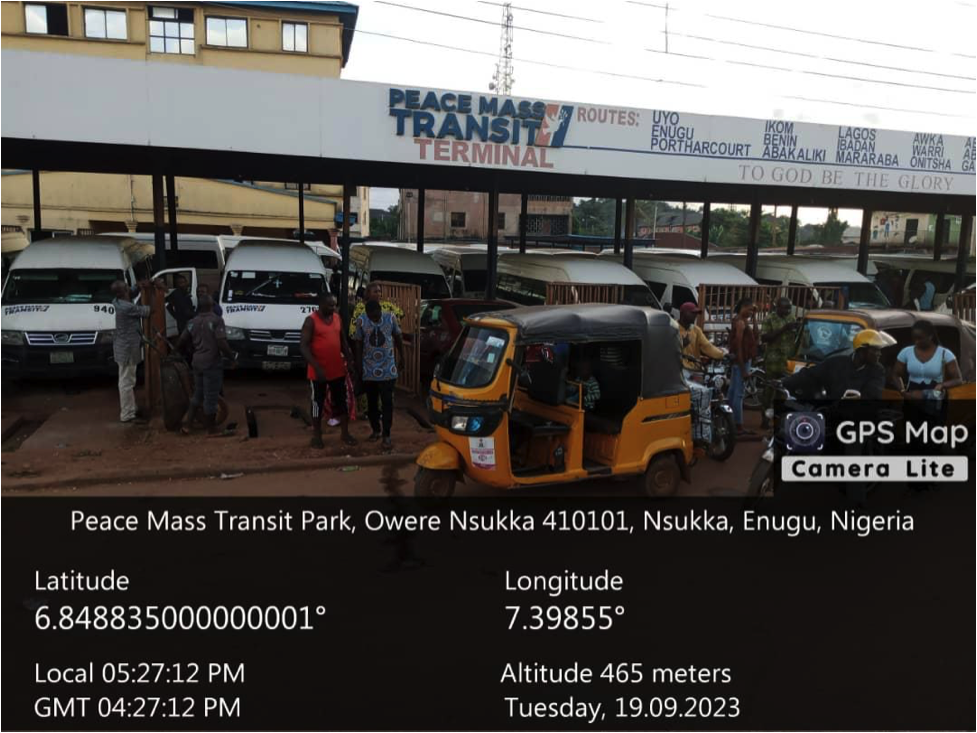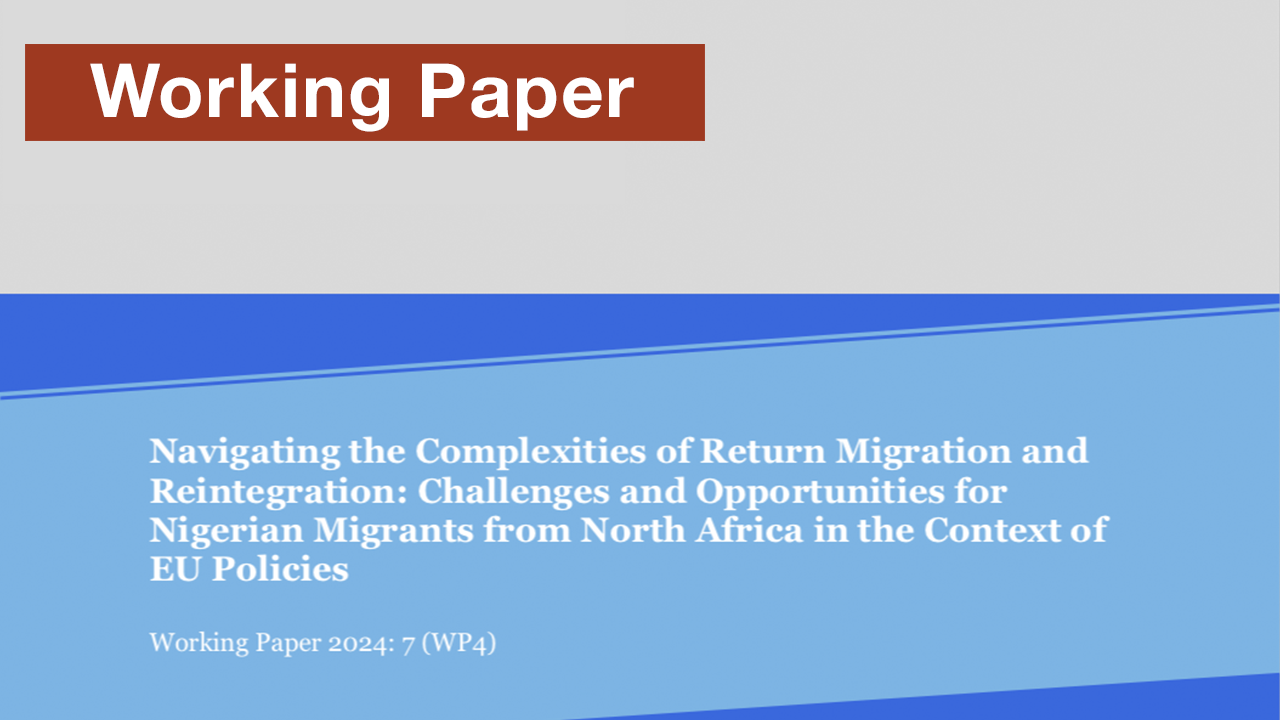Country Profile
GAPs Country Profile: Nigeria / Blog Posts
Defensiveness, Distrust, and Ethics in Return and Reintegration Research in Nigeria
by: Ngozi Louis Uzomah | University of Nigeria
The burgeoning field of return and reintegration in Nigeria, a critical area for addressing the complex realities of migration, is unfortunately riddled with a deeply ingrained culture of defensiveness, distrust, and even outright rivalry among its key stakeholders. This pervasive atmosphere not only presents significant methodological hurdles for researchers striving to understand the nuances of this intricate process but also plunges them into a precarious ethical landscape. Navigating these morally ambiguous situations is paramount, as the outcomes ultimately impact the very individuals – return migrants – whom the sector aims to assist. This blog post sheds light on these often-overlooked challenges, advocating for a more transparent and critical examination of the intricacies involved in return research. By emphasizing the crucial need for initiatives like the GAPs project to investigate weaknesses in return governance within this difficult environment, we underscore that cultivating authentic collaboration and trust is indispensable for generating reliable and ethical findings that truly improve the lives of returnees in Nigeria.
Processes of consent and voluntariness in return: Tales of three Nigerian migrant returnees
by: Ngozi Louis Uzomah, Ignatius A. Madu, Chukwuedozie K. Ajaero, Eberechukwu J. Ezea | University of Nigeria
The issue of consent and voluntariness of return of failed Nigerian asylum seekers from the EU and those in transit countries has remained in contentious debate. Many asylum seekers consent to return due to pressure from and exhaustion from these countries. In many cases, despite not volunteering to return, sub-Saharan African migrants are taken without consent to embassy hearings to ascertain their identities. Lack of consent and voluntariness have occasionally led to erroneous deportation of migrants of different origin countries to Nigeria and the deportation of Nigerian migrants to the wrong country.
Distinguishing The Return Of Nigerian Migrants From The Eu And North Africa And Alternative Pathways To Their Return
by: Ngozi Louis Uzomah, Ignatius A. Madu, Chukwuedozie K. Ajaero, Eberechukwu J. Ezea | University of Nigeria
The EU has made policies and entered into partnerships with some African countries in a bid to control migration in its territory within the last two decades. These policies prioritize sending 'unqualified' migrants back to their origin countries. North African countries on the so-called ‘European migration route’ such as Tunisia, Libya, Morocco, and Algeria are copying these policies and following in the practice of sending migrants home to countries such as Nigeria, one of the prioritized origin countries for these returns. About 170 Nigerian migrants were deported from Germany,
Dynamics, environment and migration interface in Nigeria
by: Ngozi Louis Uzomah, Ignatius A. Madu, Chukwuedozie K. Ajaero | University of Nigeria
Nigeria is the largest economy in Africa and as a result, it attracts migrants from various countries in the African continent who migrate to seek better economic prospects and/or refuge from conflicts. The movement into Nigeria became prominent in the late 1970s and early 1980s when many West Africans arrived seeking employment (Yeboah, 1986). In the last two decades, migrants from Cameroon, Central African Republic, Democratic Republic of Congo and Sudan who are fleeing conflicts in their countries have been added to the list. Both the African Union and ECOWAS free movement protocols provide the legal basis for such mixed migration (Okunade & Ogunnubi, 2019; Arhin-Sam et al., 2022). Many of the migrants use Nigeria as a transit to other parts of the world including France, Belgium, Germany and Spain…
GAPs Country Profile: Nigeria / Publications
In Nigeria, the return migration infrastructure consists of a network of various government ministries, international organisations such as the International Organisation for Migration (IOM), the International Centre for Migration Policy Development (ICMPD), the German Agency for International Cooperation (GIZ), and the European Border and Coast Guard Agency (FRONTEX), alongside local civil society organisations. Together, these entities strive to ensure the safe and dignified return of Nigerian migrants. However, significant challenges persist, including poor coordination among ministries, insufficient community engagement, and a disconnect between policy formulation and practical execution. Conducted from June 2023 to June 2024, this research involved 15 in-depth interviews with stakeholders knowledgeable about return processes, as well as insights from return migrants. Notes from the Technical Working Group, Working Group on Return, Readmission and Reintegration and Reintegration Committee meetings as well as journal articles and online materials were also consulted.
This report explores return migration governance in the African and Middle Eastern regions and the role of the EU by looking at the governance of coerced returns from Turkey, Lebanon, Jordan, and Iraq to Syria; from Morocco, Tunisia, and Libya to Nigeria; and from Iran and Turkey to Afghanistan.
This study is situated in a CONTEXT where the migration management of the African and Middle Eastern host countries under study has increasingly focused on return.
Nigeria is a major source of asylum seekers to Europe. Yet, the EU perceive Nigeria as a safe origin country resulting in low acceptance rate of Nigerian asylum seekers and the return of Nigerian migrants many of whom travel through North Africa to reach the EU. North African countries also align with the EU policy to return Nigerian migrants leading to complex reintegration processes. This study examines the return trajectories of Nigerian migrants, focusing on returnee experiences and the effectiveness of reintegration strategies with European and North African migration policies. Through semi-structured interviews with stakeholders and focus group discussions with return migrants from different parts of Nigeria, the study uncovers the dynamics and obstacles in the return and reintegration process. It reveals that even with the provision of EU-sponsored Assisted Voluntary Return and Reintegration (AVRR) in Nigeria, significant reintegration challenges exist including inadequate funding, lack of capacity and coordination issues among government agencies and civil society organisations. Many returnees reported feeling unprepared to return, alongside the incoherent strategies employed by North…








